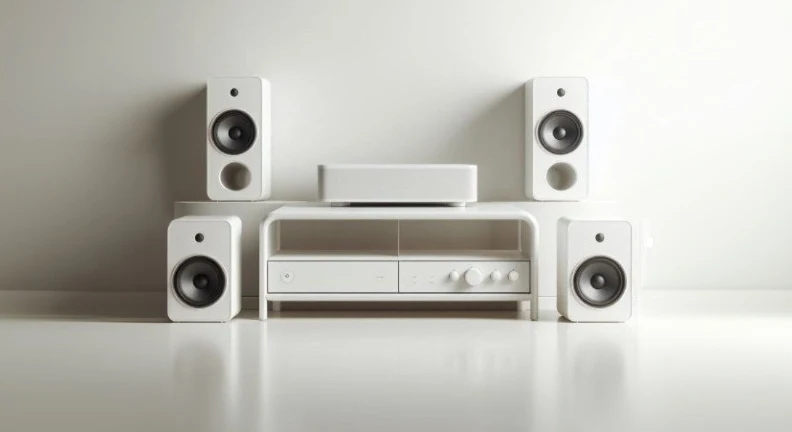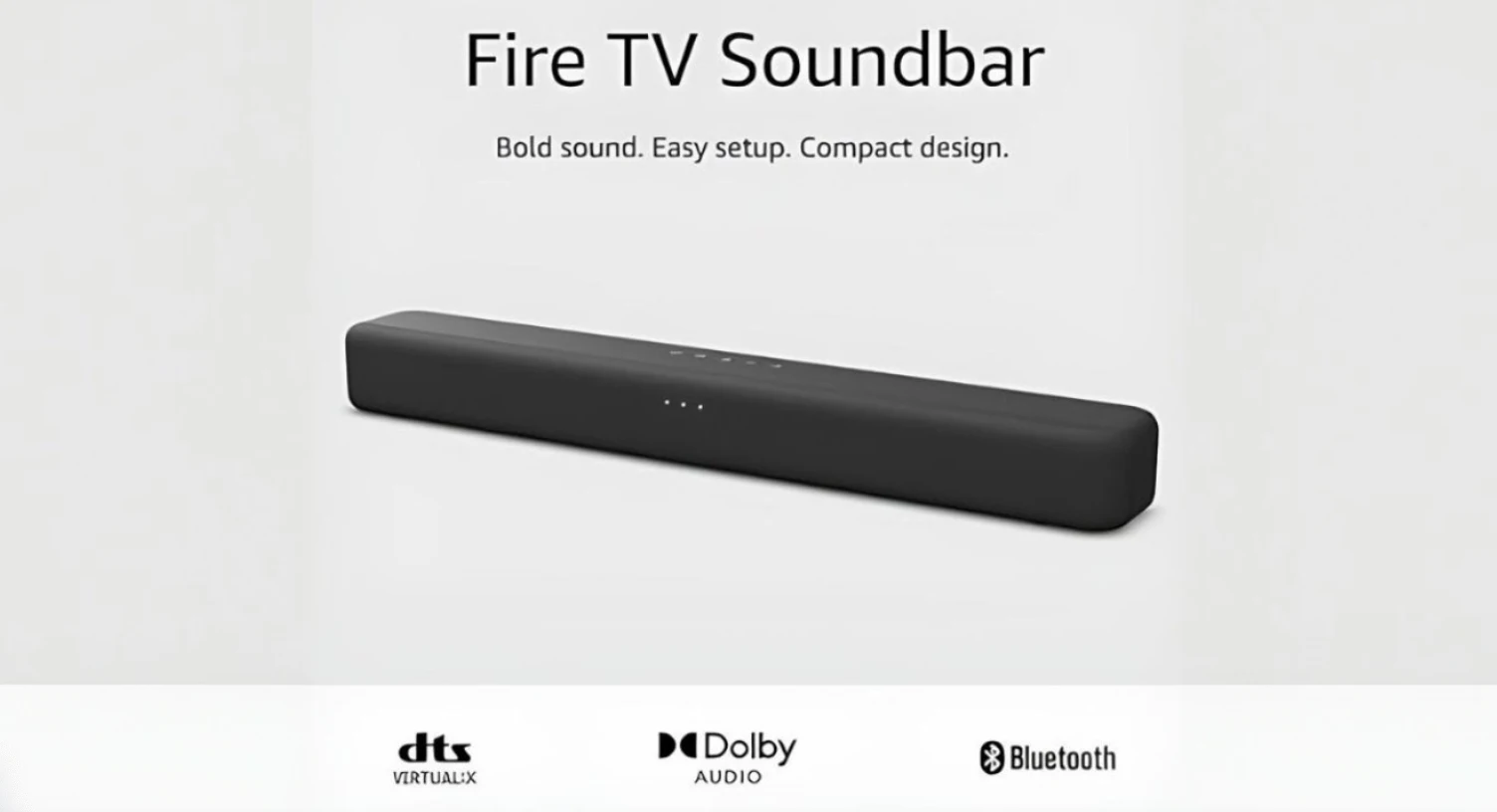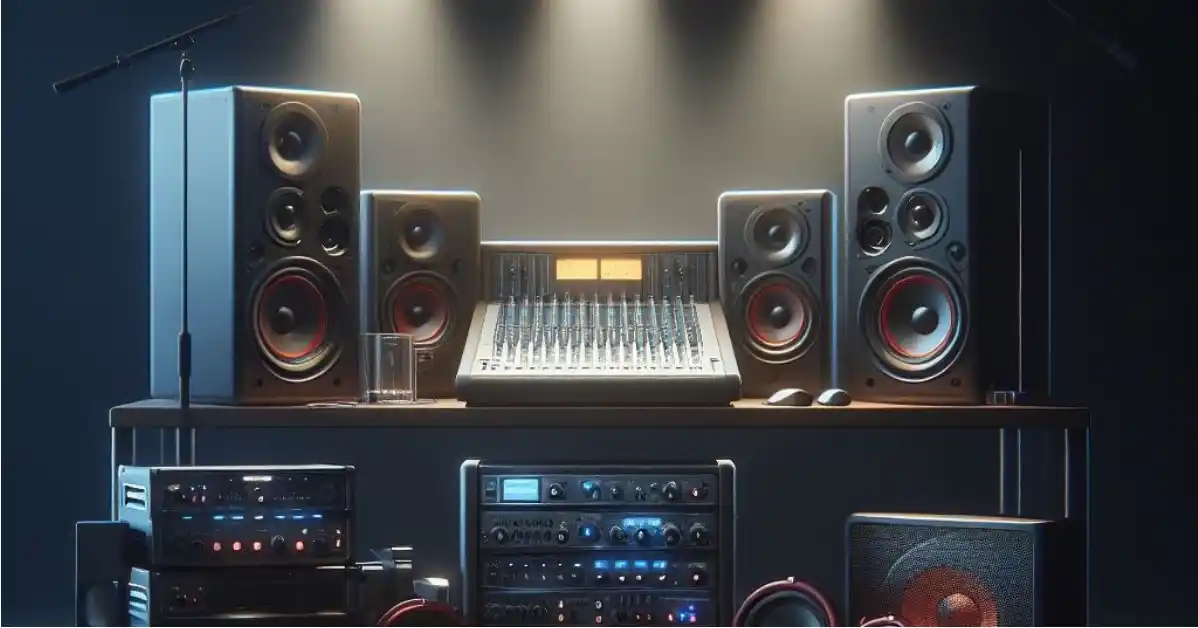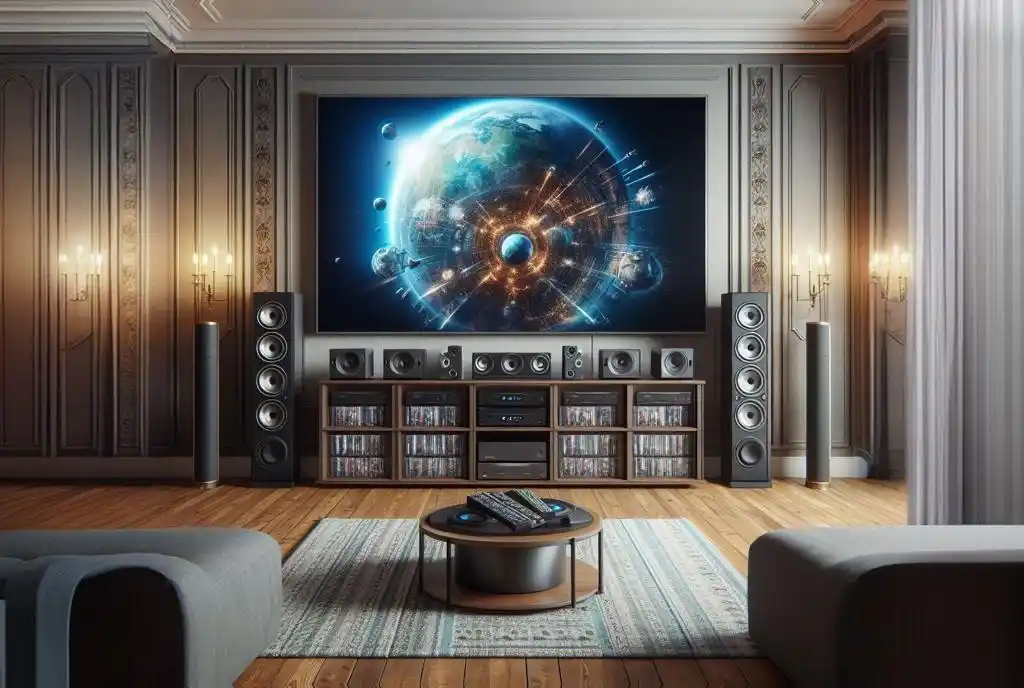Surround Sound Pros and Cons: Should You Upgrade?

Surround sound is a technology that creates a realistic and immersive audio experience by using multiple speakers placed around the listener. It can enhance your enjoyment of movies, games, music, and other media, but it also comes with some drawbacks and challenges. In this article, we will explore the pros and cons of surround sound, and help you decide whether you should upgrade your TV speakers or soundbar to a full-fledged surround sound system.
Table of Contents
What is Surround Sound and How Does It Work?
Surround sound is a term that refers to any audio system that uses more than two speakers to create a three-dimensional sound field. The most common surround sound formats are 5.1 and 7.1, which use five and seven speakers respectively, plus a subwoofer for low-frequency effects. The speakers are typically arranged in a circle or an arc around the listener, with each speaker playing a different channel of audio. For example, in a 5.1 system, the front left and right speakers play the stereo sound, the center speaker plays the dialogue, and the rear left and right speakers play the ambient sounds and sound effects.
Some newer surround sound formats, such as Dolby Atmos and DTS:X, use additional speakers or soundbars that can project sound upward, creating a sense of height and overhead sound. These formats use object-based audio, which means that each sound element can be placed anywhere in the sound field, rather than being tied to a specific speaker. This allows for more realistic and dynamic sound effects, such as raindrops, helicopters, or explosions.
What are the Benefits of Surround Sound?
Surround sound has many advantages over TV speakers or soundbars, such as:
- Better sound quality: Surround sound systems can deliver higher fidelity, clarity, and volume than TV speakers or soundbars, which are often limited by their size and design. Surround sound systems can also reproduce a wider range of frequencies, especially the low-end bass that can add impact and depth to the sound.
- More immersive experience: Surround sound systems can create a more engaging and realistic audio experience by enveloping the listener in a 360-degree sound field. This can make you feel like you are in the middle of the action, whether you are watching a movie, playing a game, or listening to music. Surround sound systems can also enhance the emotional impact and mood of the sound, such as creating tension, suspense, or excitement.
- More accurate sound localization: Surround sound systems can help you pinpoint the direction and distance of the sound sources, such as voices, footsteps, or gunfire. This can improve your spatial awareness and orientation, as well as your ability to follow the dialogue and the story. This can also give you an edge in competitive games, where hearing your enemies’ movements can be crucial.
What are the Drawbacks of Surround Sound?
Surround sound is not without its disadvantages, such as:
- Higher cost: Surround sound systems can be quite expensive, especially if you want to get high-quality speakers, a receiver, and a subwoofer. You may also need to buy additional accessories, such as speaker stands, mounts, wires, or cables. Depending on your budget and preferences, you may have to compromise on some features or performance aspects of your surround sound system.
- More complexity: Surround sound systems can be more difficult to set up and configure than TV speakers or soundbars, which are usually plug-and-play. You may need to measure your room, position your speakers, calibrate your sound levels, and adjust your settings to optimize your sound quality. You may also need to deal with more wires and cables, which can create clutter and safety hazards.
- More compatibility issues: Surround sound systems may not work well with some devices or media sources, especially if they use different surround sound formats or standards. You may need to check the compatibility and specifications of your devices, such as your TV, Blu-ray player, streaming service, or game console, and make sure they support the same surround sound format as your system. You may also need to switch between different modes or settings depending on what you are watching or playing.
Should You Upgrade to Surround Sound?
The answer to this question depends on several factors, such as:
- Your personal preference: Some people may prefer the simplicity and convenience of TV speakers or soundbars, while others may value the sound quality and immersion of surround sound systems. You may also have different tastes and expectations for your audio experience, depending on what kind of media you consume and how often you use your sound system.
- Your budget: Surround sound systems can vary widely in price, from a few hundred to several thousand dollars. You may need to consider how much you are willing to spend on your sound system, and whether you can afford to upgrade or replace your existing devices or components. You may also need to factor in the ongoing costs of maintenance, repairs, or upgrades for your surround sound system.
- Your space: Surround sound systems can take up more space and require more planning than TV speakers or soundbars. You may need to consider the size and shape of your room, the layout and furniture of your space, the acoustics and soundproofing of your walls, and the availability and placement of your power outlets and ports. You may also need to consider the aesthetics and design of your space, and how your surround sound system will fit in with your decor and style.
Conclusion
Surround sound is a great way to enhance your audio experience, but it also has some drawbacks and challenges. Whether you should upgrade to surround sound depends on your personal preference, budget, and space. If you are looking for a simple and affordable solution, you may be better off with a soundbar. If you are looking for a high-quality and immersive solution, you may want to invest in a surround sound system. Ultimately, the choice is yours, and you should do your own research and testing before making a decision.




